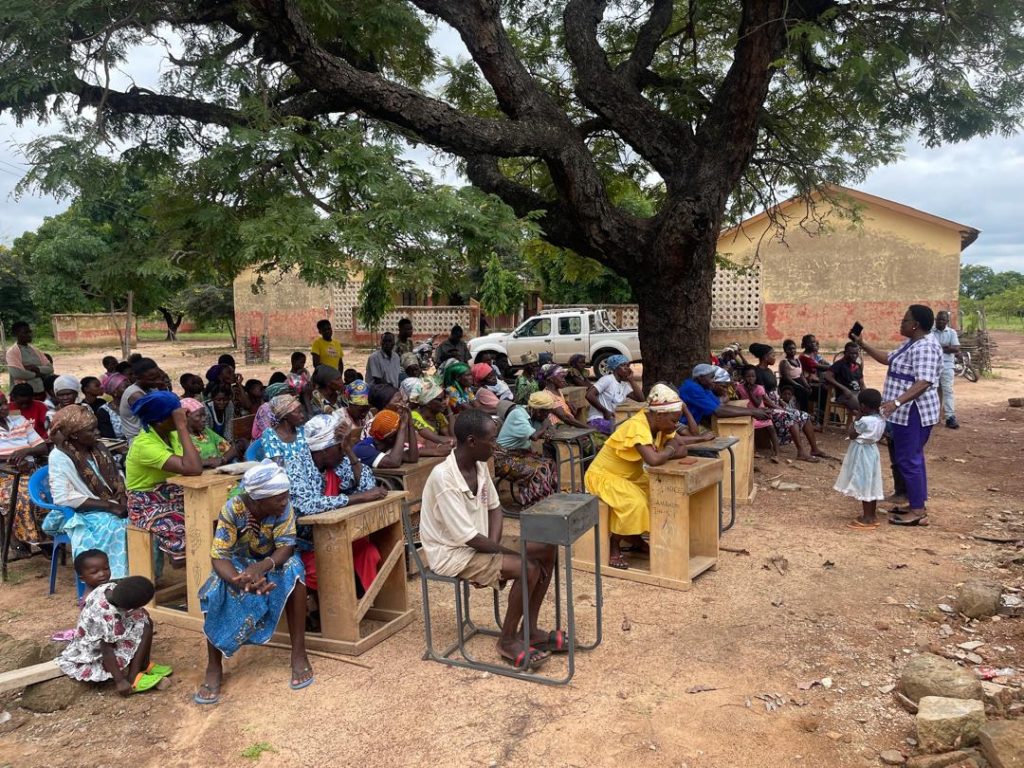|
Getting your Trinity Audio player ready...
|
Madam Matilda Doopireh Chireh, the Upper West Regional Director of the Department of Children, has advised community-level stakeholders to be interest in the welfare of children to mould them into responsible citizens in the future.
She said stakeholders at the community level including parents, traditional, religious and opinion leaders, should be interested in protecting children’s rights to ensure their proper growth and development.
Madam Chireh, who said this during a forum at Samambo, a community in the Wa West District, to commemorate this year’s National Children’s Day (NCD), indicated that proper care of children would enable them to contribute meaningfully to the development of their communities.
The forum organised by the Upper West Regional Department of Children under the Ministry of Gender, Children and Social Protection (MoGCSP), was attended by stakeholders including parents and opinion leaders.
It was on the theme: “Fostering Child Rights through Cultural, Religious, and Traditional Leadership,” sought to highlight the role of stakeholders at the community level in promoting the rights of children.
The NCD was established in 1979 as part of the Government’s efforts to advance the welfare of children in Ghana and promote the United Nations Convention on the Rights of the Child (UNCRC).
Madam Chireh likened the care for a child to the planting and nurturing of a tree, which did not benefit only the person who planted it, but the entire community.
She said child rights were guaranteed in both local and international laws including the Children’s Act 1998 (Act 560) and the UNCRC and they needed to be promoted at all levels to ensure every child enjoyed those rights fully.
“As traditional and community leaders you have a significant influence on societal values and practices that promote or affect child rights, so your endorsement of child rights is crucial for community acceptance,” Madam Chireh explained.
She mentioned communal care for children and community-based child protection initiatives among others as initiatives that could foster child rights at the community levels.
She also identified child marriage, labeling children as spirit children, corporal punishment and child labour as some issues that hampered the children’s rights and their development.
Madam Chireh stressed the need for faith-based advocacy, religious teachings on child welfare, conflict resolution and child protection collaboration among religious and traditional leaders to help protect children’s rights and to ensure their holistic development.
Madam Janet Kpan, the Upper West Regional Girls Education Officer, expressed worry that parents introduced their children to money at an early age, which influenced their quest for money.
Madam Kpan said some children ended up dropping out of school in pursuit of money, which lead them to engage in social vices or traveling to the south part of the country to act as “Kayayei” -head potters, while others also engaged in illegal mining and end up ruining their lives and future.
“If you want your children to be better than you tomorrow as a parent and have a good future, you must train them well. You must take your children’s education seriously,” she said.
Madam Kpan observed that the desire of children to own and use mobile phones also contributed to the irresponsible behaviours of some children because they were exposed to destructive information on the internet.
Some parents at the forum acknowledged that the current negative attitude of some children in the community, if not curbed, could affect the community’s development in future.
Source: GNA


